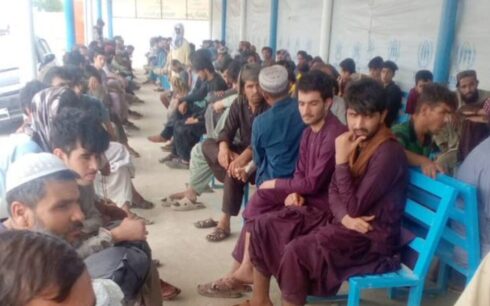ISLAMABAD, Pakistan — Pakistani authorities have set a June 30 deadline for registered Afghan nationals, including holders of Proof of Registration (PoR) cards, to voluntarily return to Afghanistan, according to the country’s minister of state for interior, Talal Chaudhry.Speaking to Geo News in an interview alongside a UN representative, Chaudhry said formal deportations would begin after the deadline passes.
“Afghan refugees were and remain our guests,” he said. “They are being sent back with full dignity and respect.”
The announcement marks the latest phase in Pakistan’s One Document Regime, a policy requiring all foreign nationals to possess valid visas or documentation. Since the policy’s implementation, more than 857,000 undocumented individuals — most of them Afghans — have been repatriated, Chaudhry said.
The second phase of the repatriation campaign, which focused on Afghan Citizen Card holders, ended on March 31. The current phase targets PoR card holders, many of whom have lived in Pakistan for decades.
Chaudhry said those who remain past the deadline would first be issued notices and then moved to refugee holding centers, where they would receive food, shelter, medical assistance, and travel support before being deported.
The comments come amid growing concerns from rights organizations and the United Nations refugee agency. Qaisar Khan Afridi, a spokesperson for the UNHCR, emphasized during the same broadcast that returns must remain voluntary, not coerced.
“Among these refugees are former Afghan government officials, civil society activists, musicians, and educated professionals,” Afridi said.
“Forcing them back would mean putting their lives at serious risk.”Afridi also noted that the agency had received complaints of arrests involving documented refugees in parts of Punjab. Chaudhry, however, denied the claims, saying no such incidents had been officially confirmed and that similar reports in the past were found to be false upon investigation.Pakistan is home to over 1.3 million registered Afghan refugees, many of whom fled during decades of war.
While officials insist that repatriations are being carried out in coordination with international agencies, human rights groups have warned that the policy could violate international protections for asylum seekers.





